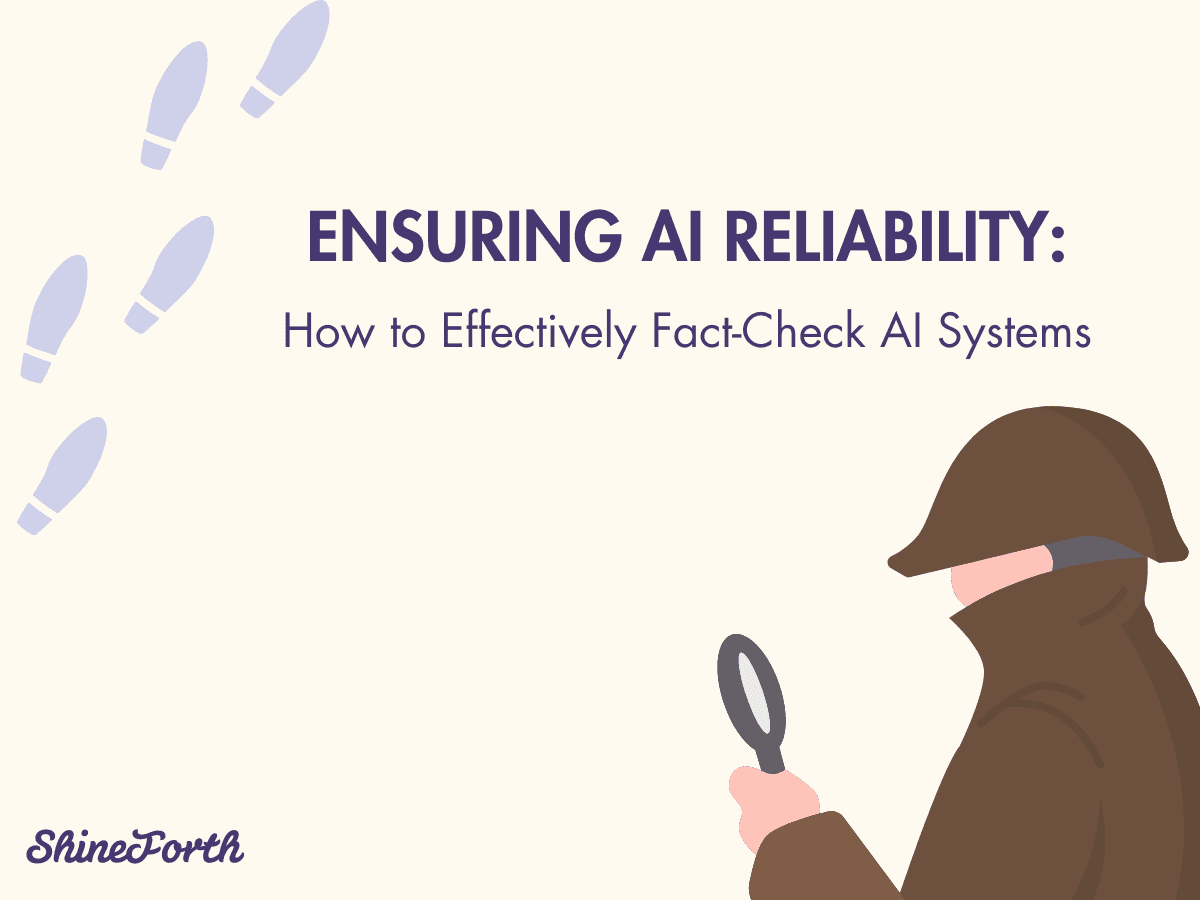Ensuring AI Reliability: How to Effectively Fact-Check Artificial Intelligence Systems

In our rapidly advancing digital age, artificial intelligence (AI) stands at the forefront of technological innovation. From chatbots revolutionizing customer service to algorithms that forecast market trends, AI has permeated nearly every sector. However, as AI's influence grows, so does the responsibility to ensure its outputs are accurate and trustworthy. This is where fact-checking AI becomes crucial—a meticulous process that upholds the integrity and reliability of AI systems.
Understanding the Importance of Fact-Checking AI
AI systems learn and make decisions based on the data they're trained on, making data quality paramount. Consider an AI model trained on outdated or biased information; it could lead to flawed conclusions, misguided business decisions, or even ethical dilemmas. Fact-checking AI is not merely about verifying data points; it's about maintaining the credibility of technology and fostering user trust.
The sheer complexity and volume of data handled by AI systems render manual verification impractical. Yet, recognizing the importance of fact-checking is the first step towards ensuring AI systems deliver value without compromising integrity. As AI development continues to evolve, so too must our strategies for ensuring its accuracy and dependability.
Strategies for Effective AI Fact-Checking
Fact-checking AI necessitates a multi-faceted approach. It begins with data verification at the source, ensuring datasets used to train AI models are accurate, current, and unbiased. For instance, if you're employing AI for market analysis, the data must reflect the latest trends and originate from reputable sources.
Continuous monitoring is another vital strategy. AI systems are dynamic, evolving with new data inputs and changing parameters. Regularly auditing AI decisions and outputs can help identify errors early. Transparency tools that elucidate AI decision-making processes offer invaluable insights, allowing one to trace how conclusions are reached.
Collaboration with domain experts is equally crucial. While AI can process vast datasets, human expertise is often required to interpret complex results. By partnering with experts, developers can ensure AI insights are not only precise but also contextually relevant and actionable.
Real-World Applications and Emerging Trends
Businesses across sectors are already harnessing AI fact-checking. In healthcare, where AI predicts patient outcomes, fact-checking is indispensable. By cross-referencing AI predictions with medical research and expert opinions, providers can enhance patient care and diagnostic accuracy.
In finance, AI systems analyzing market trends and suggesting investment strategies undergo rigorous fact-checking to avert costly mistakes. This involves comparing AI insights with historical data and current market conditions to ensure reliability.
An emerging trend in AI fact-checking is the development of explainable AI (XAI) systems. Designed to be transparent about their decision-making processes, XAI makes it easier for developers and users to understand and trust AI outputs. As the demand for accountable AI grows, XAI is poised to become an industry standard.
Fact-checking AI is not a one-time task but an ongoing commitment to quality and reliability. For developers and businesses, adopting robust strategies for verifying AI accuracy is essential to harness the full potential of this transformative technology while minimizing risks. As AI continues to shape the future, the importance of maintaining its credibility cannot be overstated.
The next step for businesses is to integrate fact-checking processes into their AI development life cycle actively. By doing so, they not only enhance the value of their AI solutions but also build a foundation of trust with their users. As the saying goes, trust is earned, and in the realm of AI, it starts with ensuring the facts are right.In our rapidly advancing digital age, artificial intelligence (AI) stands at the forefront of technological innovation. From chatbots revolutionizing customer service to algorithms that forecast market trends, AI has permeated nearly every sector. However, as AI's influence grows, so does the responsibility to ensure its outputs are accurate and trustworthy. This is where fact-checking AI becomes crucial—a meticulous process that upholds the integrity and reliability of AI systems.